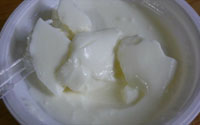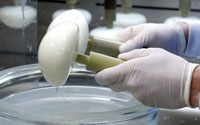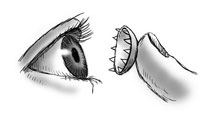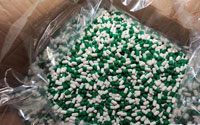HOME >>
High level of plasticizers found in liquor
Source:Globaltimes.cn Published: 2012-11-20 14:22:00
| Latest News |
Jiugui halts trading after safety claim
According to the business portal 21cbh.com on November 19, three types of plasticizer (DEHP, DIBP and DBP) were found in four bottles of Jiugui liquor which were bought by 21cbh staff for 438 yuan ($70.30) per bottle and tested by Intertek China, an international third-party quality tester.
Local equities mixed, brewers fall on safety concerns
| Responses |
●Fan Zhen, deputy general manager of Jiugui Liquor Co, told China National Radio Monday that the company has discussed the matter with 21cbh.com and could not verify that the tested liquor product was produced by Jiugui.
Intertek China test results are dubious since the third party certification company is a commercial agency, but Jiugui has submitted its products to an authoritative testing department, Fan said, adding that the company is unsure when its stock will resume trading on the Shenzhen Stock Exchange.
●The China Alcoholic Drinks Association claimed late Monday that though most domestic liquor products contain plasticizers, the amount they contain is certainly below food industry standards.
The industry association said that the plasticizer found in liquor is mainly caused by the use of plastic in the liquor production process, while the fermenting process of the liquor itself does not generate plasticizer.
●"The entire testing process of Intertek is in accordance with Chinese standards," said Henry Lin, a spokesperson for the Shanghai office of Intertek
●The quality watchdog in Hunan Province, where Jiugui Liquor is located, said in a statement released Tuesday evening that the investigation so far shows no evidence proving Jiugui has intentionally put plasticizer in its products.
"We'll continue our investigation and any illegal activity will be punished according to the law," Hunan's Administration of Quality and Technology Supervision said on its website.
| Test Results |
The amounts of DBP reached 1.08 milligrams per kilogram, 260 percent higher than the domestic industrial standard of 0.3 milligrams per kilogram, while the other two types did not exceed industrial standards, according to 21cbh.com.
| About Plasticizer |
| Effects |
| Changes in market value of domestic distilleries on November 19 | ||
| Ups rate (%) |
Market value (10,000 yuan) |
|
| Wuliangye Yibin | -5.82 | -683,272.04 |
| Kweichow Moutai | -4.61 | -1,074,516.30 |
| Hengshui Laobaigan | -10.01 | -49,000.00 |
| Shui Jing Fang |
-7.09 | -75,724.58 |
| Gujinggong |
-4.95 | -80,576.00 |
| Yanghe | -5.25 | -610,200.00 |
| Fen Liquor |
-5.34 | -174,035.49 |
| Luzhou Liquor | -6.13 | -302,025.97 |
| Source: Shanghai Stock Exchange and Shenzhen Stock Exchange | ||
| Viewpoints |
| Related Cases |
 Photo: www.ce.cn |
Without further elaboration, a TV host alleged on his microblog Monday Chinese solid yogurt and jelly products are unhealthy and horrible. The post immediately sparked concerns from Web users, but was later deleted. |
 Photo: people.com.cn |
China's medical watchdog has asked patients having had breast implants from a now-defunct French company suspected of making implants reportedly linked to instances of cancer to go to hospital for checkups, despite the report saying that there have been no adverse reaction cases in China. |
 Photo: Global Times |
The cosmetic colored contact lenses which have no medical use, have been listed as a "medical apparatus" by China's State Food and Drug Administration because of safety and quality concerns, according to a statement issued by the administration on January 19. |
 Photo: Xinhua |
China's drug watchdog issued an emergency notice on April 15 to suspend the selling and consumption of a list of capsules with reported excessive chromium contamination. Earlier Sunday, a report run by the China Central Television (CCTV) revealed that several commonly used drugs were packed into capsules made from industrial gelatin, which contains a much higher degree of chromium than edible gelatin. |
Posted in: